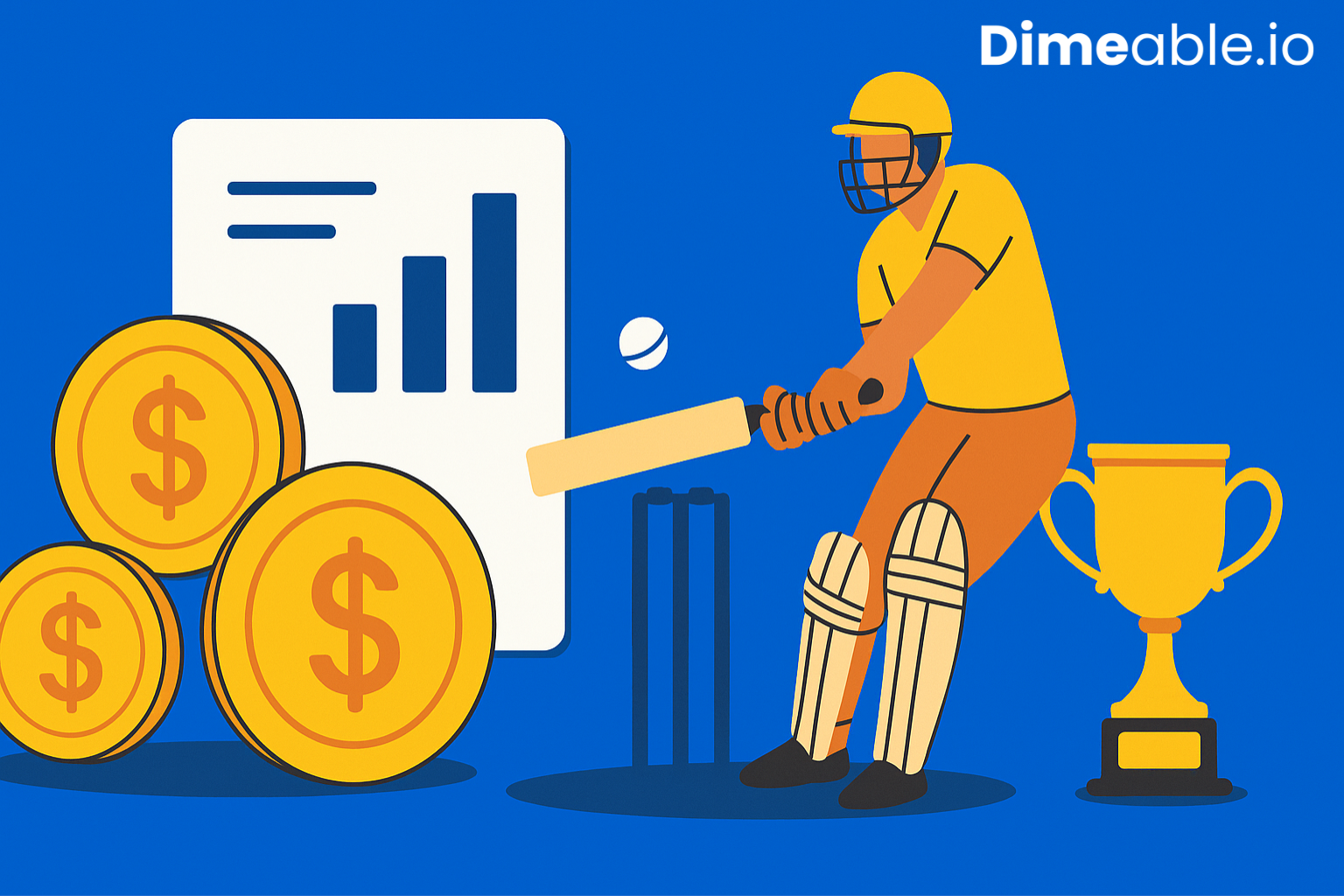IPL Tax Revenue is one of the lesser-known but most fascinating stories behind the Indian Premier League.
While fans are busy cheering for sixes and last-ball thrillers, the government is quietly cashing in, making crores from this cricketing carnival.
But how much does the government really earn from IPL tax revenue? Let’s dive into the numbers, taxes, and hidden streams behind the cricket mania.
IPL Tax Revenue Sources: The Money Machine Behind the Madness
Before we get into the taxes, let’s understand where IPL’s money comes from:
-
Franchise Fees: Teams pay crores to BCCI to own an IPL franchise.
-
Broadcasting Rights: Media giants bid billions for the golden ticket to air the matches.
-
Sponsorships and Ads: Brands scramble to get a slice of the eyeballs IPL attracts.
-
Ticket Sales and Merchandising: Every ticket and jersey sold adds to the giant money pot.
-
Player Auctions and Endorsements: High player fees and brand collaborations push up the numbers even further.
All this money flowing around naturally leads to a treasure trove of IPL tax revenue for the government.
How IPL Tax Revenue Is Collected: A Play-by-Play Breakdown
Here’s a closer look at how the government collects its share of IPL riches:
1. Goods and Services Tax (GST)
-
Match Tickets: Buying an IPL ticket? You’re paying 28% GST upfront.
-
Food, Drinks, and Merchandise: Burgers, soft drinks, and jerseys at the stadium attract 5%-18% GST.
-
Franchise and Sponsorship Deals: Big behind-the-scenes deals? They’re not tax-free—GST is applied here too.
2. Income Tax on Franchises and Players
-
IPL Franchises: Classified as commercial entities, they pay corporate tax on profits.
-
Players:
-
Indian players are taxed based on income slabs (some pay over 30%).
-
Foreign players face a 20% TDS on earnings in India.
-
3. Broadcasting & Advertising Taxes
-
Broadcasters: They pay corporate tax on IPL-related revenues.
-
Ad Buyers: Advertisement costs come with tax obligations.
-
Foreign Broadcasters: They pay withholding tax on income earned during IPL seasons.
4. Sponsorship and Endorsement Taxes
-
Sponsors: Brands shelling out crores to sponsor teams pay GST on sponsorship fees.
-
Player Endorsements: Players are taxed on brand endorsements linked to IPL exposure.
Clearly, IPL tax revenue streams in from multiple directions.
Government Revenue Estimates: How Big is IPL Tax Revenue?
In 2023 alone, IPL generated over ₹3,500 crore for the government.
This whopping figure includes:
-
GST from ticket sales, food, and merchandise
-
Corporate taxes from franchises and broadcasters
-
TDS and income taxes from players
-
GST on sponsorships and digital ads
And that’s just direct taxes! The indirect economic boost through tourism, travel, and local spending creates even more tax opportunities.
Is IPL Tax Revenue Helping India’s Economy?
Oh, absolutely.
Thanks to IPL:
-
Thousands of Jobs Are Created: From caterers to camera crews.
-
Tourism Booms: IPL matches spike hotel, flight, and restaurant bookings.
-
City Infrastructure Improves: Stadium upgrades, road repairs, and hospitality investments rise.
The tax income—IPL tax revenue—helps fund public programs, infrastructure development, education, and healthcare.
Conclusion: IPL Tax Revenue—A Win-Win for Everyone
IPL Tax Revenue isn’t just about cricket—it’s about crores flowing back into the Indian economy.
Every boundary, every brand deal, every screaming fan with a ticket in hand is indirectly contributing to government coffers.
As IPL grows bigger year after year, IPL tax revenue is only going to soar higher.
Cricket isn’t just India’s passion; it’s becoming a national money machine too!
FAQs: IPL Tax Revenue
1. How much tax does IPL contribute annually?
IPL tax revenue contributes approximately ₹3,500 crore every year.
2. Do foreign players pay taxes on IPL earnings?
Yes, foreign players are taxed at 20% TDS on IPL earnings.
3. What is the GST on IPL match tickets?
IPL tickets attract a steep 28% GST.
4. Are IPL franchises taxed separately?
Yes, IPL franchises pay corporate tax on their business profits.
5. How does the government benefit from IPL sponsorships?
Brands pay GST on sponsorship fees, boosting the government’s IPL tax revenue.
Also Read: Player Auctions 101: How IPL Teams Spend (and Lose) Millions



Pingback: Google Tax Abolished